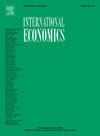Measuring political leader's geopolitical risk perceptions
引用次数: 0
Abstract
Does a political leader's perception of geopolitical risk influence the real economy? If so, to what extent and through what mechanisms? Using local-language sources, we explore these questions by constructing a geopolitical risk index based on textual data from statements made by Chinese President Xi Jinping and examining its relationship to firms' investment behavior in China. The index shows notable spikes in April 2016, June 2018, and April 2022, corresponding to terrorist attacks in neighboring countries, U.S.-China tensions, and the Russia-Ukraine war. We find that an increase in the geopolitical risk index is associated with a decline in firms' investment rates. Specifically, a 100 % increase in the index leads to a 14.1 % reduction in investment. Notably, while firms with high effective interest rates and greater exposure to international trade are adversely affected by the geopolitical risk, politically connected firms are less affected, indicating their ability to mitigate its negative effects. Our findings advance the geopolitical risk literature by highlighting the role of political leaders' perceptions, utilizing local sources to measure this factor, and examining the moderating effect of political connections under geopolitical risks.
衡量政治领导人的地缘政治风险认知
政治领导人对地缘政治风险的看法会影响实体经济吗?如果是,在多大程度上,通过什么机制?该指数在2016年4月、2018年6月和2022年4月出现了明显的峰值,对应的是邻国的恐怖袭击、美中关系紧张以及俄罗斯与乌克兰的战争。我们发现地缘政治风险指数的增加与企业投资率的下降有关。具体来说,指数增加100%导致投资减少14.1%。值得注意的是,虽然具有高实际利率和国际贸易敞口较大的公司受到地缘政治风险的不利影响,但具有政治关系的公司受到的影响较小,这表明它们有能力减轻地缘政治风险的负面影响。我们的研究结果通过强调政治领导人认知的作用,利用当地资源来衡量这一因素,并检查政治关系在地缘政治风险下的调节作用,从而推进了地缘政治风险文献。
本文章由计算机程序翻译,如有差异,请以英文原文为准。
求助全文
约1分钟内获得全文
求助全文
来源期刊

International Economics
Economics, Econometrics and Finance-Economics, Econometrics and Finance (all)
CiteScore
6.30
自引率
0.00%
发文量
74
审稿时长
71 days
 求助内容:
求助内容: 应助结果提醒方式:
应助结果提醒方式:


